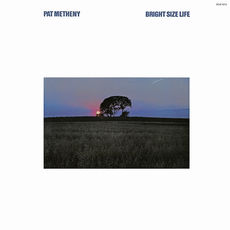Manfred Eicher could not be further from a stereotype of some pigeon-befriending retiree. He is resolutely a man of the times, not a misplaced anachronism bound to the ball-and-chain of outdated methods. For him, music didn’t end with his beloved Kind Of Blue by Miles Davis... Put simply, the founder and brains of ECM has his own set of values. He sticks to them and tends to them every day, without any table-thumping evangelism. This devoted adherence opens him up to charges of being outmoded or unable to adapt to modern trends. However, more than four decades after the launch of his label (with an album by Pianist Mal Waldron, Free At Last), the Munich producer isn’t living out of time, but rather in a parallel time; one street over from the world that the capitalistic media complex creates and insists is the only one possible. Why this hunt for (false) novelty at all costs? Why the permanent sense of urgency? Why have music everywhere and all the time, in airports, shops, lifts, waiting rooms, restaurants, trivializing it as background noise? Why do you have to have a mobile phone? Eicher dismisses the diktats of this attention, distraction economy with a wave of his hand, preferring the sanctity of his own. Tranquil. Serene. But a world in which he is far from alone. The love that ECM fans feel for this more considered approach to life is well-known… through its music. Music which is understood differently. Conceived differently. Valued differently. Lived differently. Here is the interview with Manfred Eicher, who quite simply lives like a free man. It was the title of the first ECM album: free at last!
What was your understanding of what it meant to produce music before you started your ECM adventure?
At the outset, I didn’t have any views about this world at all. I just admired certain people, like Teo Macero, who had produced the wonderful Kind Of Blue by Miles Davis. I also appreciated the work of Phil Ramone and several producers from the world of classical, but I didn’t see myself as one of them...
It’s surely related to you being a musician at heart. A violinist and then a double-bassist...
Quite. I still am. Today, I think of myself foremost as a musician. I started playing violin when I was 6 years old. I moved onto the double bass at 14 when I heard Paul Chambers play with Miles. I played with the Berlin Philharmonic and in other classical outfits, but also with jazz musicians. I loved moving from a universe of written music to a universe of improvised music. It was never a question of accumulating encounters and experiences, but rather a matter of living out my passions. I loved chamber music - I grew up with what my parents listened to, Schubert mainly - but also rock or jazz like Miles and the Bill Evans trios...
How did it all start?
Honestly, it was all very innocent at first. I was just a musician with some classical training, listening to classical music and jazz and I preferred to stop playing double bass so I could become a producer, and get closer to the music. I didn’t want to limit myself to one instrument. I didn’t want to travel around the world as a soloist either. By becoming a producer, I could get right up close to the music, sculpt it. Be a musical sculptor. But that didn’t happen all at once. For one thing, as a musician, when I was recording as part of my orchestra, I could never stop myself from going behind the console to re-listen to the recordings. I never liked what I heard. When I became a producer myself, recording jazz musicians, I immediately wanted to bring the idea, the philosophy and the concentration of recorded chamber music to what I was doing with them. A clarity in the approach, in the concentration, in the dynamic, even. Something that was lacking from jazz records at the time. Back then, that didn’t really exist.
Create a free account to keep reading














